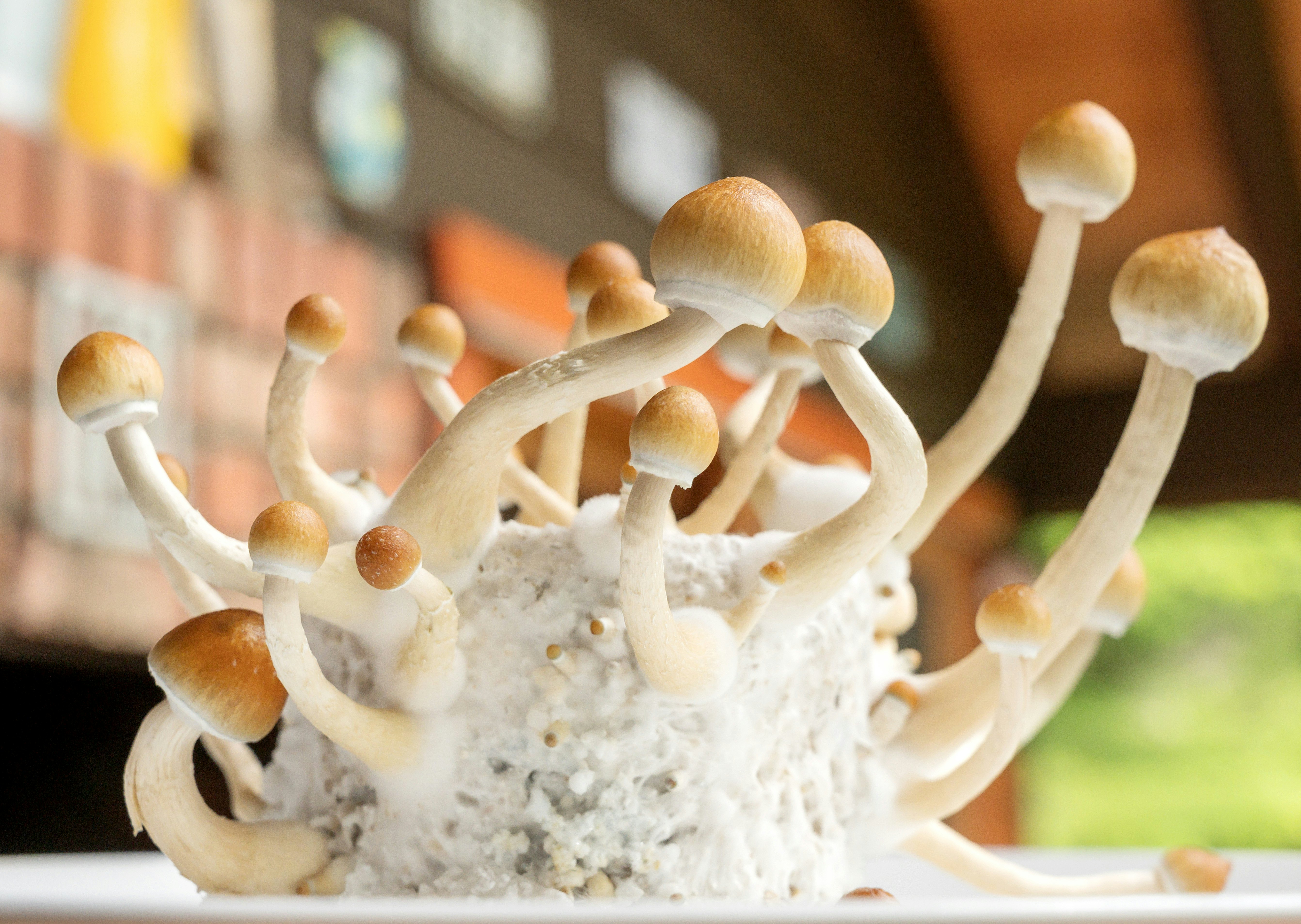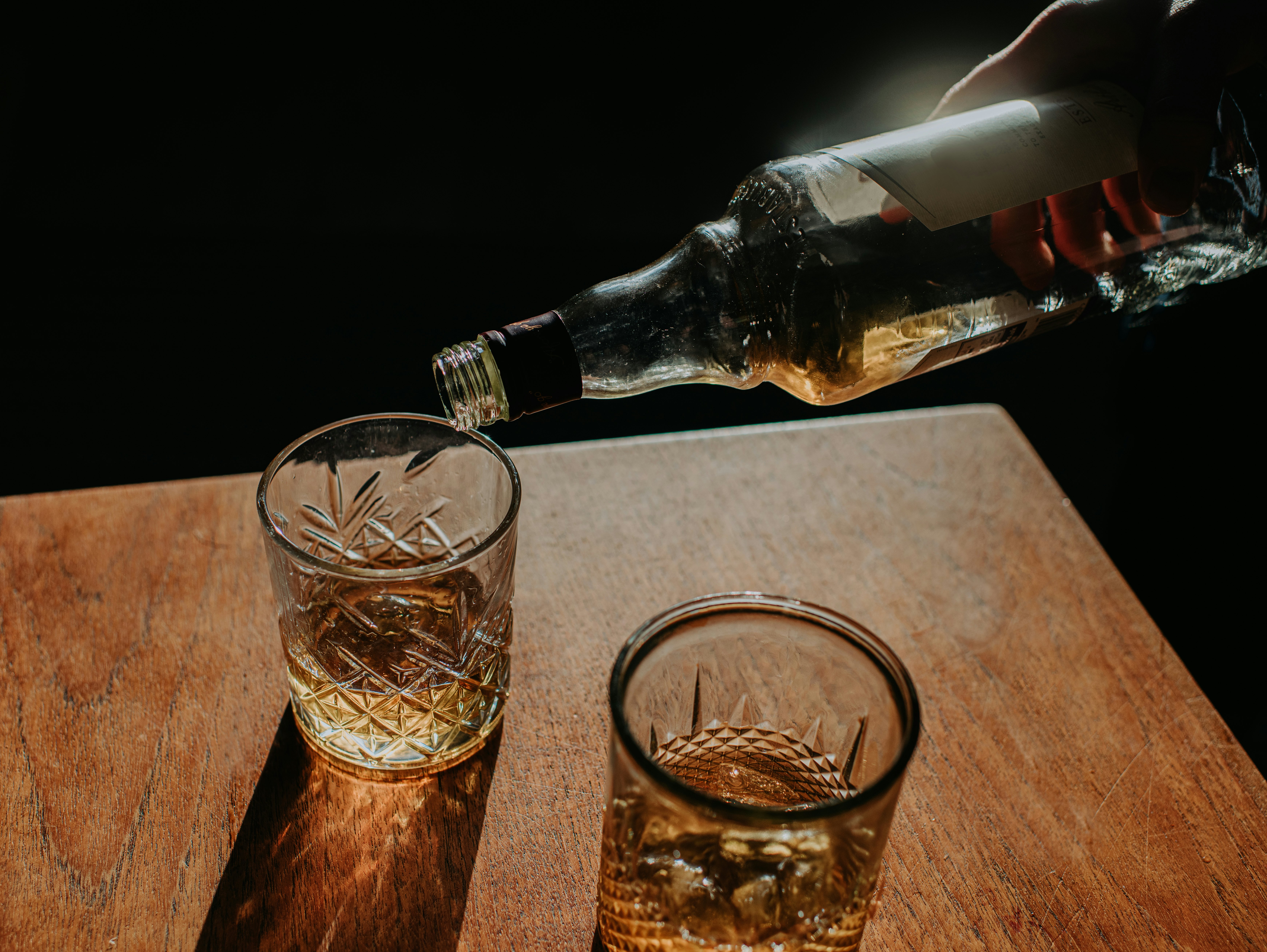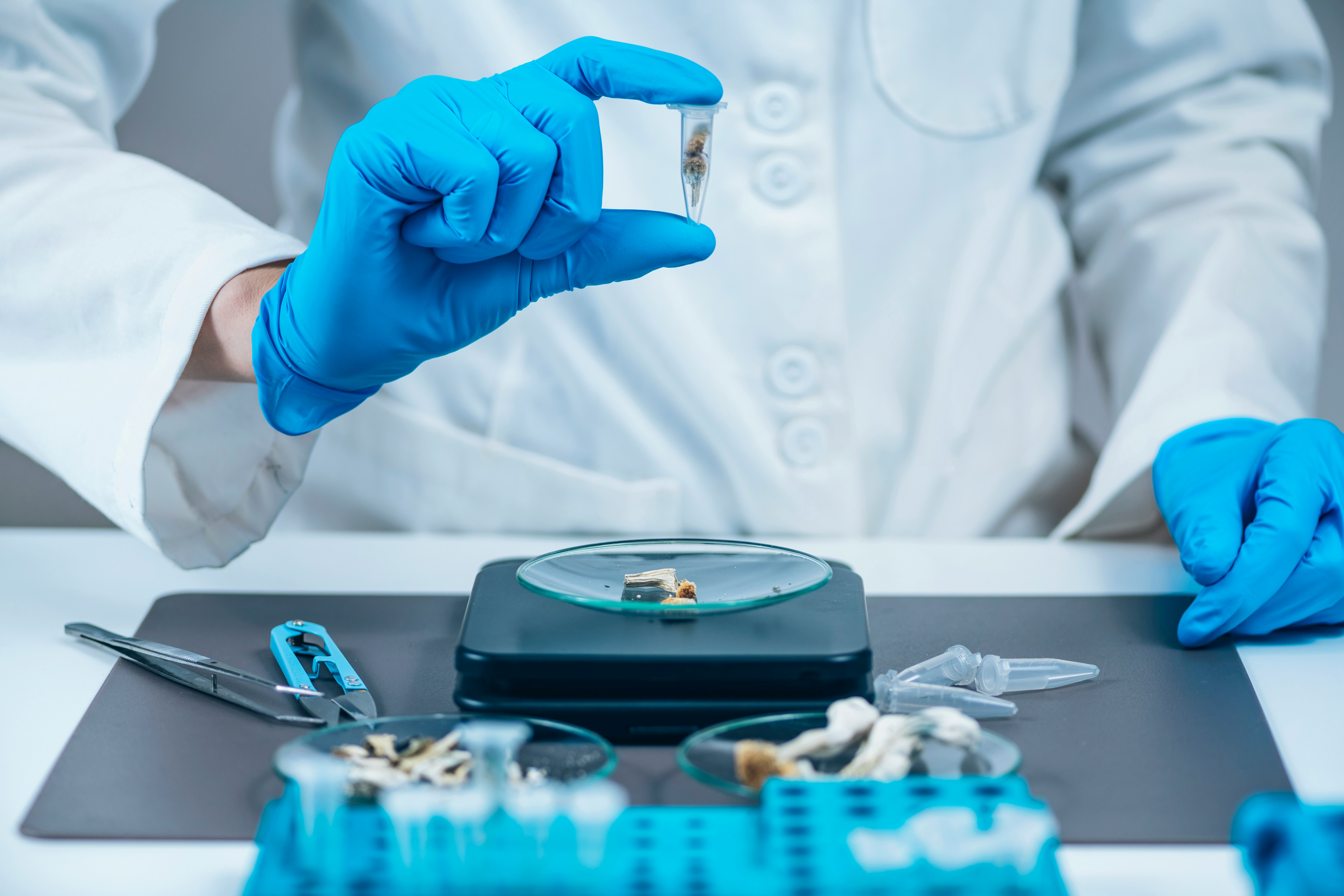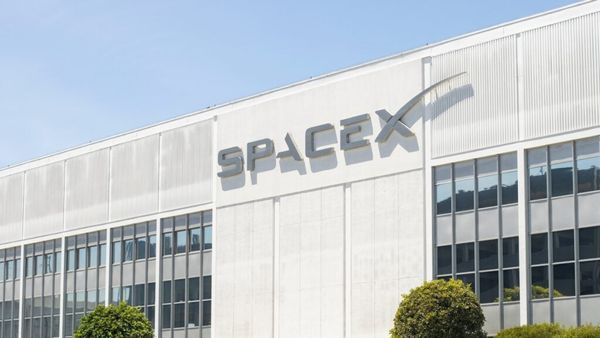
The first randomized, placebo-controlled trial evaluating psilocybin-assisted therapy as a treatment for alcohol use disorder has yielded striking results.
The study, published Wednesday in the journal JAMA Psychiatry, outlines how researchers at NYU Grossman School of Medicine determined that psilocybin — one of the psychoactive compounds in magic mushrooms — combined with psychotherapy could reduce heavy drinking in people with alcohol use disorder by as much as 83 percent.
The study has profound implications for the estimated 14.5 million people in the United States with alcohol use disorder. It also furthers decades of slow, steady work to research psilocybin — a drug that’s currently illegal in most states as well as at the federal level — as a treatment for everything from depression to substance use disorders.
“The state of the art of alcohol use disorder and its treatment remains very challenging,” Charles Marmar, chair of the department of psychiatry at NYU Grossman School of Medicine, said in a press conference Wednesday morning. “There is an urgent need for novel medications for alcohol use, for addiction generally, and more broadly, for the entire field of psychiatry.”
Here’s the background— Alcohol is one of the most commonly used drugs in the world. Excessive alcohol use is responsible for more than 140,000 deaths per year in the United States and shortens the lives of those who died by an average of 26 years.
“There are a number of medications and psychotherapy that can be helpful [with alcohol use disorder] but their effects tend to be small, and they do not work for many patients,” Michael Bogenschutz, director of the NYU Langone Center for Psychedelic Medicine, said at the press conference. “Many people with alcohol use disorder are not interested in available treatments, and only one person out of 60 with alcohol use disorder is receiving medical treatment for it.”
Psilocybin has long shown promise as a treatment for alcohol use disorder, in part because it’s thought to help repair a specific neurotransmitter receptor in the brain. When damaged, which can occur with excessive alcohol use, it impairs impulse control and may increase cravings for alcohol.
While the neurochemical reactions that take place when someone takes psilocybin may play an important role in its use as a treatment for alcohol use disorder, when paired with psychotherapy, the effects may be even more profound.

Until now, researchers hadn’t been able to test that hypothesis in a randomized, placebo-controlled setting, which is the gold standard for scientific research.
What they did — 93 men and women with alcohol dependence were sorted into two groups. Both groups received psychotherapy, but one group received two doses of psilocybin, and the placebo group received two doses of an antihistamine. The antihistamine, diphenhydramine, is mildly psychoactive in high doses.
At the press conference, Bogenschutz explained the rationale for this decision.
“The idea was to use something as a control condition that would have enough of an effect to at least create some uncertainty in terms of what people thought they had received,” he said, noting that in a double-blind study, neither the researcher nor the participant is supposed to know what group they were in.
“In this case, we weren't terribly successful in maintaining the blind after people received the medication that is, most people were able to guess what medication they received,” Bogenschutz said. “It kind of comes with the territory when the drug you're using has very active, overt psychological effects.”
Participants were evaluated from the time of treatment through eight months following completion of the treatment.
What they found — Both groups saw dramatic decreases in their heavy drinking, but in the psilocybin group, it was especially pronounced. Those who received the psychedelic treatment reduced their heavy drinking by 83 percent compared to their drinking habits before the study began. The placebo group reduced their drinking by 51 percent.
48 percent of the participants who received psilocybin were able to completely abstain from alcohol in the eight months following their first dose; in the placebo group, 24 percent of participants completely abstained following treatment.
Jon Kostas, one of the participants in the psilocybin group credits the psilocybin-therapy combination with saving his life.

“I tried everything, to no avail. AA, rehab, inpatient [treatment], outpatient [treatment], different pharmaceuticals, saw different specialists. I mean, you name it, I tried it, and probably more than once,” he said. “I was desperate; I was terrified of psychedelics, I never experimented with them. But at this time, I was so desperate that the only other alternative here was death.”
Kostas believes the therapy cured his alcoholism. “I don't categorize myself as an alcoholic anymore, which is crazy to say, and I don't say it lightly.”
Digging into the details — In addition to the researchers and Kosta, a participant in the placebo group, Paul Mavis, was on the panel. He was only offered psilocybin at the conclusion of the study. Despite that, he said the psychotherapy part was integral to the reduction in his drinking, even before he received the psilocybin treatment.
“When I did take the psilocybin dose, I was able to compare, but I had already gone through all of this therapy, I had made profound changes in my life, I had become more open, more everything you'd expect. So I thought that maybe I was more receptive to the effects of the psilocybin later than I was in the early days when I might have been a little inhibited, a little bit nervous,” he explained.
The changes he saw in his own alcohol use after just the psychotherapy reinforced his conviction that therapy was a really important part of the treatment.
“It’s essential this therapy is done in the right hands with trained professionals,” he said. “This was not amateur hour; these two doctors knew what they were doing, they were experienced, and there was no doubt in my mind that this was going to be fine. Even though there was a lot of potential anxiety in the very beginning.”
Experienced, ethical therapists are especially important considering some of the safety issues that have come to light with underground psychedelic-assisted therapy.
When done well, Mavis explained the profound impact the two can have.
“I’m sure the psilocybin alone would have had a major impact,” he said. “But the combination [of therapy and psilocybin], had a really huge impact.”
What this means for the future — The researchers said they’re hoping to build on this success with larger studies — the kind that might sway both public opinion and federal regulators about the benefit of psilocybin-assisted therapy.
“There is a plan. The timeline is not entirely in our control. But we're planning to launch a larger multi-site trial with over 200 participants, 15 sites,” Bogenschutz said. “Large trials like that will take two or three years to complete. It remains to be seen exactly what the FDA will require beyond that, but that's the next step.”







